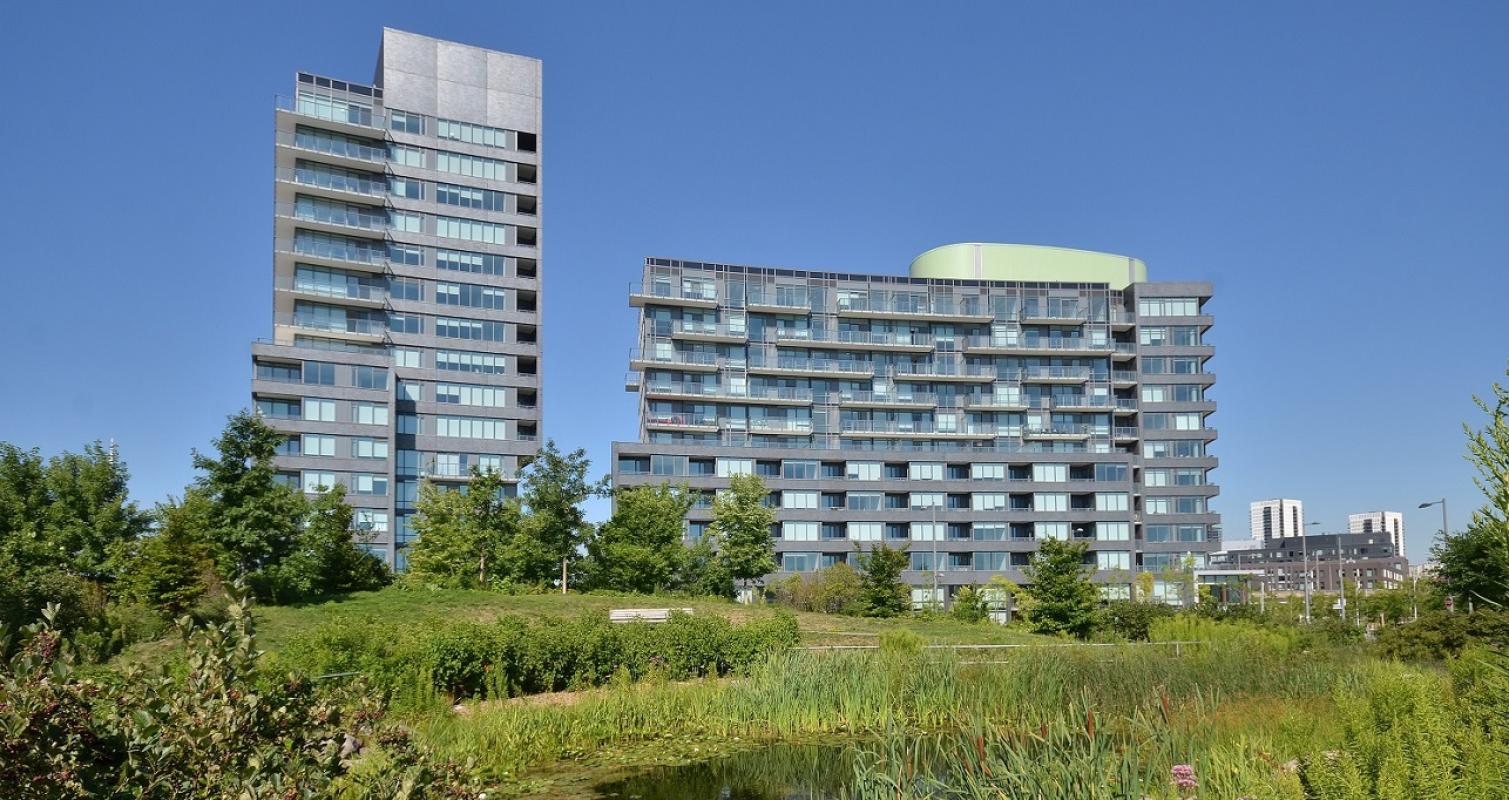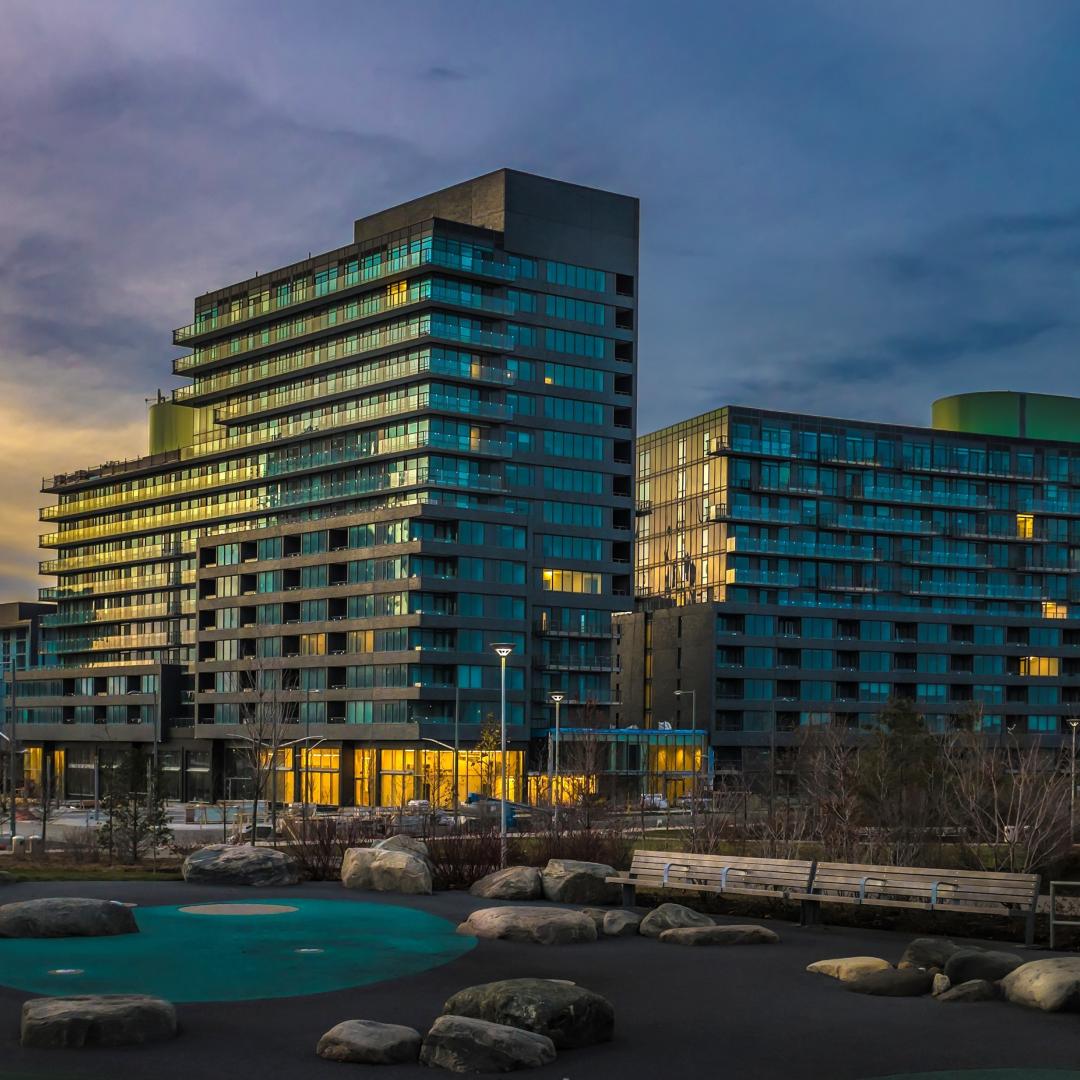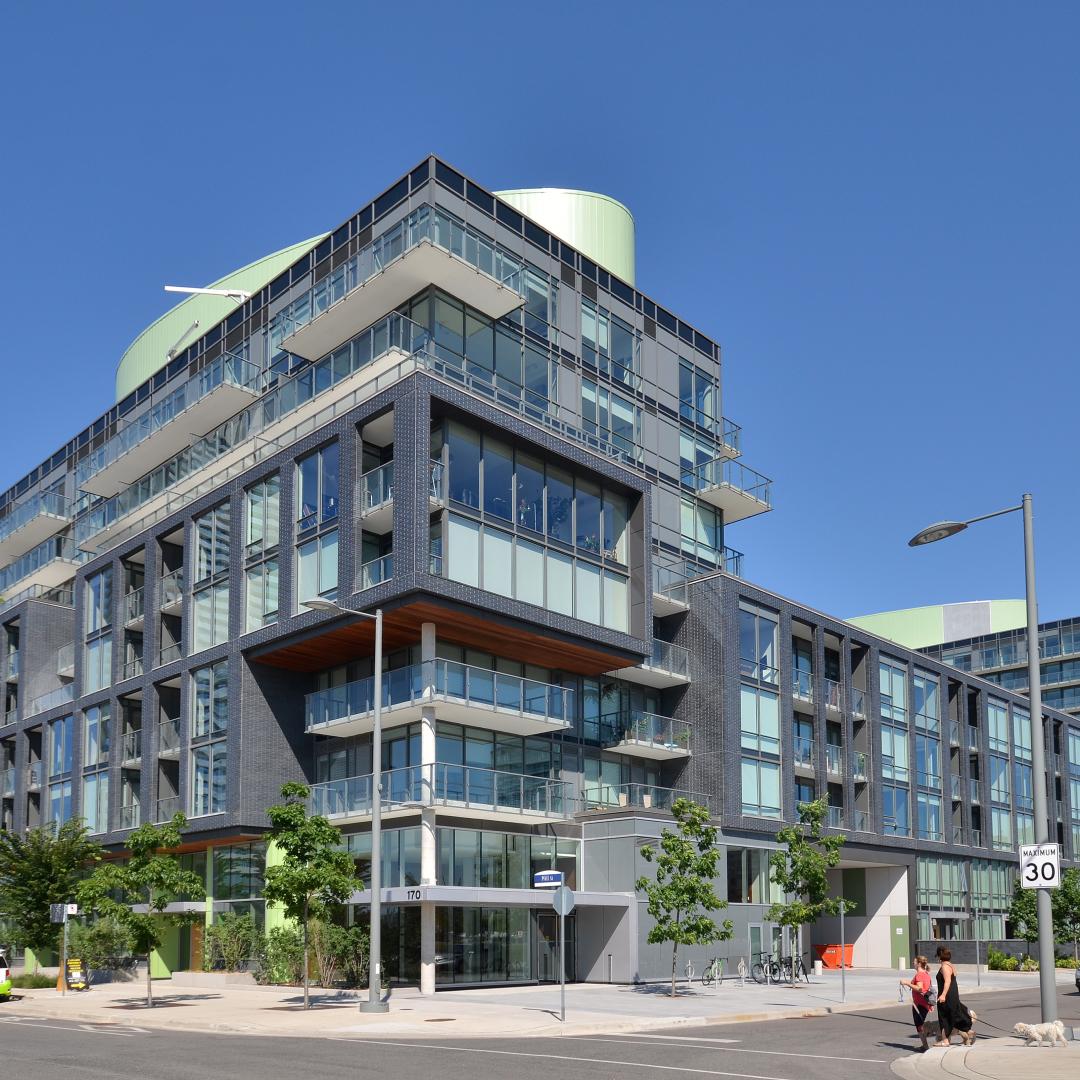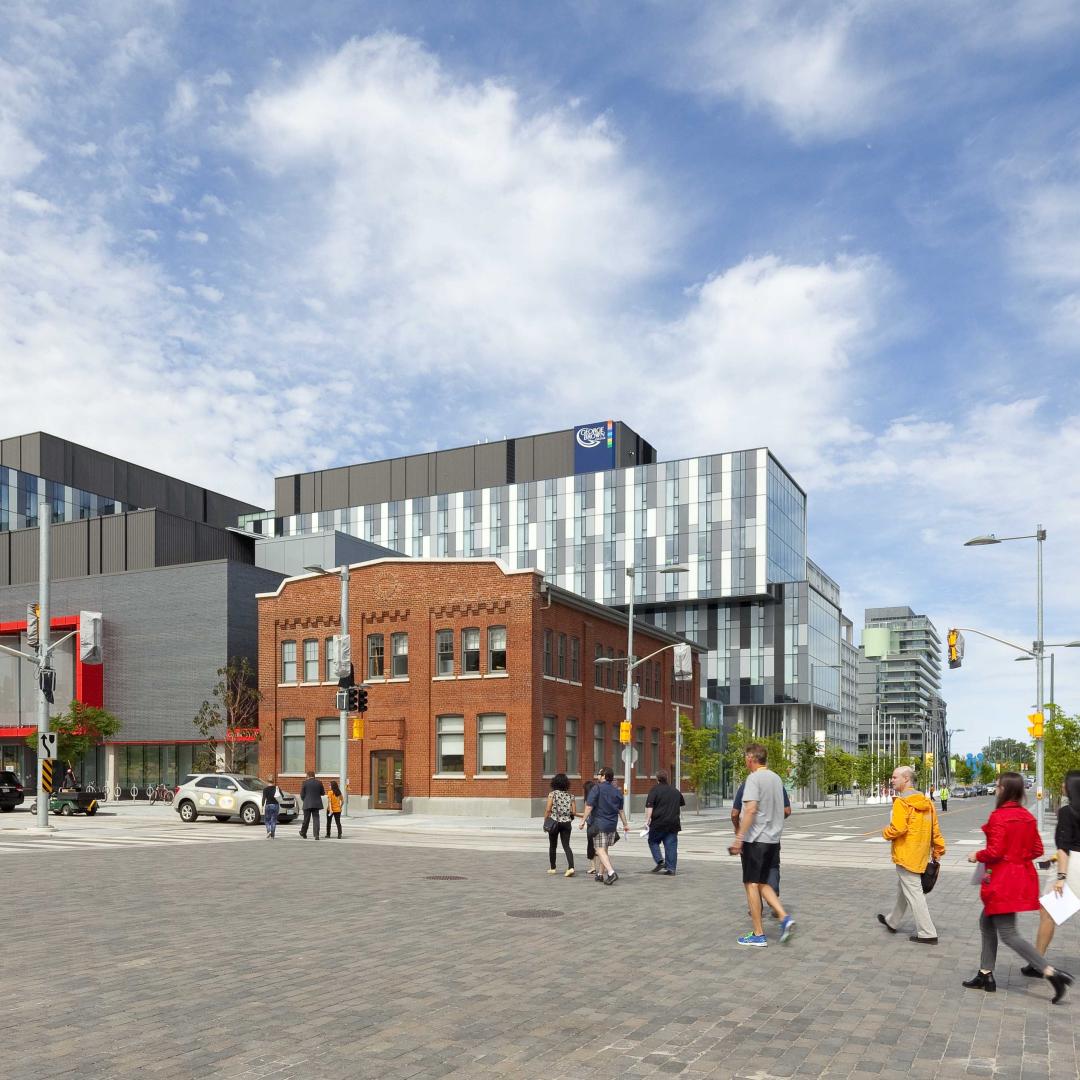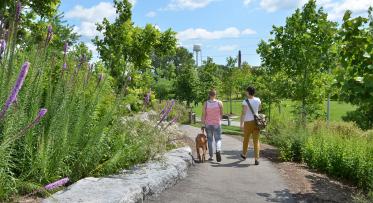Canary District Condominiums
Cherry Street to the west,
Bayview Avenue to the east,
Mill Street to the south,
Eastern Avenue/Old Eastern Avenue to the north.
The award-winning Canary District Condominiums bring urban flair to Toronto’s next great neighbourhood.
Developed by Dundee Kilmer Developments as part of the ambitious 2015 Pan/Parapan American Games Athletes’ Village project, the Canary District features mostly mid-rise condominium buildings in the heart of the West Don Lands.
The Canary District will be a highly walkable neighbourhood with great connections to downtown, the neighbouring Corktown and Distillery neighbourhoods and Don River trails. The overall design of the Canary District was guided by Waterfront Toronto's West Don Lands Precinct Plan, and in keeping with Waterfront Toronto’s sustainable development requirements, all buildings have been designed to achieve LEED® Gold certification.
Cafes, restaurants, vibrant retail, accessible community services, beautiful public art and proximity to Waterfront Toronto's signature parks provide residents and visitors with the comforts and conveniences of a well-established neighbourhood.
Quick Facts
Branded the ‘Canary District’ by Dream Kilmer as a nod to the Canary Restaurant that served the area for decades, the 14-hectare (35-acre) area includes a new 82,000 square foot YMCA recreational facility, George Brown College’s first ever student residence, two affordable rental housing buildings, and five condominium developments.
The Canary District is being built in phases. Phase one, which includes 805 suites on two development blocks (Canary Park and Canary District Condominiums), was first used as temporary accommodation for the athletes and officials of the 2015 Pan/Parapan American Games. Once the Games were completed, permanent suite finishes were installed to ready the units for permanent occupancy in the spring of 2016. Subsequent phases include additional market condominiums on three development blocks, also located on Front Street east of Cherry Street.
Dream Kilmer launched the MyHome Program specifically designed for first-time homebuyers. The program helps qualified applicants with down payment assistance and is designed to provide a way for first-time homebuyers to start building equity and enjoying the benefits of homeownership.
For information or to register, visit the MyHome Program on the Canary District’s website. The MyHome team is available to provide all the information needed to help purchasers realize the dream of home ownership and learn why the MyHome® Program is the surest and best way to first-time homeownership in the GTA.
Design Excellence
To ensure aesthetic diversity, Dream Kilmer employed an integrated design team composed of four internationally-recognized architecture firms. The architects were commissioned to design unique, contemporary buildings that set the standard for future phases of development in the Canary District. The overall design is focused on walkability and integration with the other neighbourhoods under development in the area.
Key design elements in the Canary District include open and transparent streetscapes, an extensive pedestrian network to ensure a highly walkable and pedestrian-friendly neighbourhood, and large-scale windows and balconies to connect residents living above with the bustle of streets below.
The development includes a secondary system of interior routes through the mid-block courtyards to provide strong north-south connections in the neighbourhood, and every block has been designed to reinforce Front Street as the main street and public promenade in the community.

